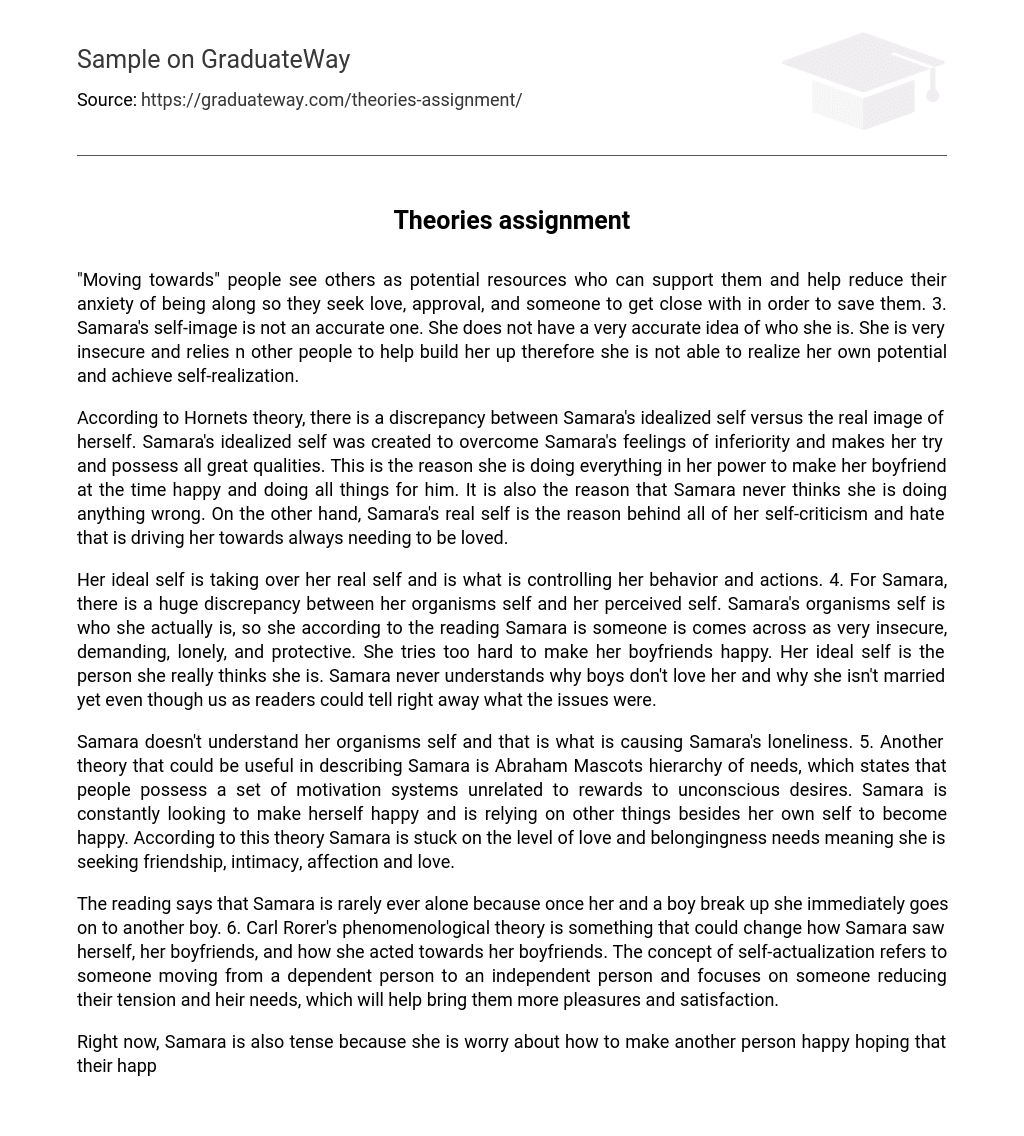“Moving towards” individuals have an inclination to view others as potential providers of support and solace, seeking love, validation, and companionship in order to alleviate their fear of being alone. Samara lacks a precise perception of herself and feels insecure, depending on others to enhance her self-esteem. As a result, she is incapable of acknowledging her own capabilities and achieving self-actualization.
According to Hornets theory, there exists a discrepancy between Samara’s envisioned self and her authentic self. Samara’s envisioned self was constructed to overcome her feelings of inferiority and compels her to acquire admirable qualities. Consequently, she exerts her utmost efforts to ensure her boyfriend’s happiness and fulfills all his needs. Moreover, this explains why Samara perceives her actions as constantly correct. Conversely, Samara’s authentic self gives rise to self-criticism and a deep-seated dislike that propels her never-ending quest for affection.
Samara is facing a conflict between her true self and the person she aspires to be. Her true self, which can also be called her organisms self, is marked by insecurities, demands, loneliness, and protectiveness. She frequently makes significant efforts to ensure her boyfriends’ happiness. On the contrary, her ideal self represents who she believes she genuinely is. Samara finds it difficult to understand why she doesn’t succeed in attracting boys’ love or getting married, even though the underlying problems are apparent to us as readers.
Samara’s lack of understanding of her own self is the main reason behind her loneliness. Another helpful theory in understanding Samara is Abraham Maslow’s hierarchy of needs, which suggests that individuals have intrinsic motivation systems that are independent of rewards and connected to unconscious desires. Samara constantly seeks external sources of happiness, rather than relying on her own self. According to this theory, Samara is fixated on the level of love and belongingness needs, indicating her desire for friendship, intimacy, affection, and love.
The text states that Samara does not spend much time alone as she quickly moves on to a new boyfriend after breaking up with one. 6. Carl Rorer’s phenomenological theory has the potential to alter Samara’s perception of herself, her boyfriends, and her behavior towards them. The idea of self-actualization involves a transition from dependence to independence and emphasizes the reduction of tension and needs, which ultimately leads to increased pleasure and satisfaction.
Samara is currently facing anxiety related to the desire to satisfy others and hoping that their happiness will ensure their affection for her. However, by cultivating greater self-assurance and faith in herself, Samara can acknowledge the favorable aspects of her life and her own capabilities. This will ultimately enable her to achieve increased autonomy. Once she achieves this, she will be capable of discovering a partner who truly adores her, resulting in a more wholesome relationship compared to her previous experiences.





